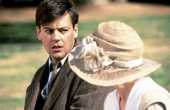HeatherDeBel
Contributing writer for The Artifice.
Junior Contributor III
- Lurker
- Sharp-Eyed Citizen
- ?
- Articles
2 - Featured
1 - Comments
14
- Ext. Comments
9 - Processed
2 - Revisions
2
- Topics
4 - Topics Taken
1 - Notes
5
- Topics Proc.
0 - Topics Rev.
0
- Points
323 - Rank
X - Score
157
Latest Articles
Latest Topics
film Write this topicHow Vampires have Changed in FilmAnalyze the most important changes in vampire films from the early Dracula and Nosferatu horror movies, to the teen action vampire shows of the 90's like Buffy the Vampire Slayer, to the diverse vampire films of today like Twilight, Let the Right One In, and Underworld. Focus on the genre of each film, the character of the vampire, his/her appearance, whether or not he/she is the villain, the way the vampire is killed, and what this kind of vampire says about the generation.
|
literature Write this topicThe Poetry of William Carlos WilliamsAnalyze his short poems, specifically, The Red Wheelbarrow, A Sort of Song and This is Just to Say. Talk about its historical placement in modernism, but also, how we can understand his work living in a post-modern world? How can we continue to learn from such brevity? |
Published | literature Write this topicMark Twain and RacismCalled both the most racist book of all time, and also a book that fights against racism, analyze Huckleberry Finn and its cultural implications. Is calling Twain a product of his time excusing his racism? Is Jim a complicated black character? Can the repeated use of the "n" word exclude this book from being a great piece of American literature?
|
arts Write this topicStraight Ciswomen and Country Music"God Made Girls" and "A Girl in a Country Song" are often played next to each other on country radio, though one clearly perpetuates gender stereotypes, while the other calls the portrayal of women in modern country songs into question, while still perpetuating gender stereotypes in the song's video quite hypocritically. Also the song "Girl Crush" has been banned some places for its lesbian undertones, though it is not a lesbian song. So, what really is going on with girls in country music, and will there ever be a place for the LGBT community in pop country? |
Latest Comments
| Sexual Assault in HBO's Game of Thrones | |
Great article. It is easy to believe that a story belongs to someone, but perhaps stories don’t belong to anyone, perhaps that is just our way of thinking. It’s interesting that people say “this is ‘my story'” as if there is only one and it belongs solely to the person who lived it. Oates, as long as she doesn’t claim to be writing a piece of non-fiction, has every right to create her own kind of truth out of the Fiocco story. She of course risks public scrutiny because of the timing, but how many stories throughout time end in death? How many have such masculine characters, or a consequent tragedy? Perhaps readers can’t see past the Fiocco incident because readers can’t think past ownership. Perhaps we need to think about stories differently. | Joyce Carol Oates and Ethical Writing |
I have never heard of her before this article. But this was fascinating. Thank you for introducing me to her so succinctly. | The Art of Francesca Woodman: Haunting, Evocative, Personal |
What a great and in depth article. Thank you. I am often frustrated when people say “It wasn’t as good as the books.” I find film and literature to be different forms of art and almost impossible to compare. When discussing dialogue, character development, plot or whatever else, people often forget that movies are visual and do not have the luxury of time. Your article though, succeeds in discussing the difficult topic of film adaptations, specifically in one very important subject – the intent of the artist – something that is often forgotten. | Do We Need the Author's Approval in a Film Adaptation? |
Really great article and well-written! Thank you. And I am interested in Roxanne Gay’s opinion on bad feminism – because if one believes that a woman has the right to chose her path in life with equal opportunity, that is not being a bad feminist. Someone who looks down on a stay at home mom is being ridiculous, not a good feminist. They are not looking at the social, political and economic situations of patriarchal America. She also believes that mainstream feminism means looking down on women who chose the domestic life. That could be true, but I also think mainstream feminism has a lot to do with white feminism and popular feminism – the kind of feminism that is talked about only because it’s popular and not grounded in intellectual social theory. It seems to me that what she is saying is exactly mainstream feminism, that perhaps she has defined her own kind of feminism….Reminds me of what bell hooks might call faux feminism. | Analyzing Jane Eyre as a Contemporary "Bad Feminist" |
Insightful article. It is always so fascinating how movies display historical culture, particularly the sexism and racism of the time. I wonder if you’ve ever read anything on Disney’s transphobia- not just a reflection on Disney but on our culture. Have you noticed that all the villains in Disney movies have attributes of the opposite sex? Maleficent has her hair slicked back like horns instead of Aurora’s long flowing hair, Jafar has a feminine face and physique with long eye lashes, Ursula is very masculine, built stocky with a short hair cut…the list goes on. Most villains, particularly in the past, have the stereotypical attributes of the opposite sex – a culture’s natural and unfair gut reaction to people who cross-dress, are gender fluid, or transgender? | Feminism and the Disney Princesses |
GoT is just getting more heat because it’s more popular. I’ve never seen Eastenders but I’m sure there is something to be said about it. These poorly shot rape scenes aren’t ok because there is violence everywhere in the show and because it is a show for adults. The scenes aren’t acceptable or unacceptable because of the context of the show. What deems them acceptable or unacceptable is how they are portrayed. | Sexual Assault in HBO's Game of Thrones |
You’re right in that all instances of violence on film or literature or other forms of television should be re-examined and they are, for example, many people have written great articles about how television perpetuates our belief that torture works to get information out of people, yet it has been proven that this never works. Rape scenes are never shot to prepare us for and to help us deal with our fear of rape. They are shot to add drama and sex into shows because that is what sells. Also, no one is asking film makers to ignore rape and pretend it doesn’t exist. We are asking them to stop sexualizing rape and turning it into a stereotype. And it’s not because rape scenes are too uncomfortable. Comments on social media (i.e. Sofie’s INSTA) show that people enjoy rape scenes. We are asking them to change the way they think about rape scenes because currently they are inaccurate, harmful, stereotypical and they perpetuate tropes. | Sexual Assault in HBO's Game of Thrones |


There was nothing accurate about the rape scenes. They did nothing to bring awareness to the realities of sexual violence. Shows shouldn’t ignore rape. That’s not my point or my suggestion to fix the situation. My suggestion is to do a better job handling the scenes.
And sure, Sansa was not happy. That’s why it was rape. But because the rape was so sexualized, her reaction, her sadness, her distress is sexualized too. It just continues the dominance Ramsey has over her outside of the bedroom. It doesn’t matter if a character is sad after her/his rape. That does not decide whether the scene was handled well or not.
And it’s not laughable to say that such scenes normalize sexual violence. While YOU might have been left upset, many people were not. Rape scenes become more violent, more graphic, and more sexualized as time progresses. This is the process of normalization.